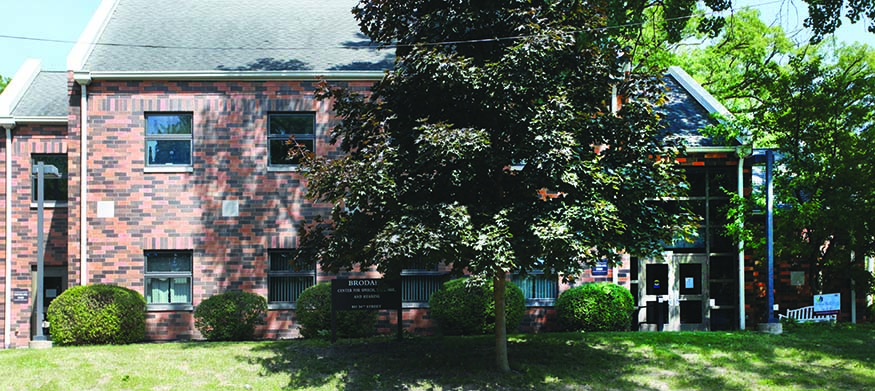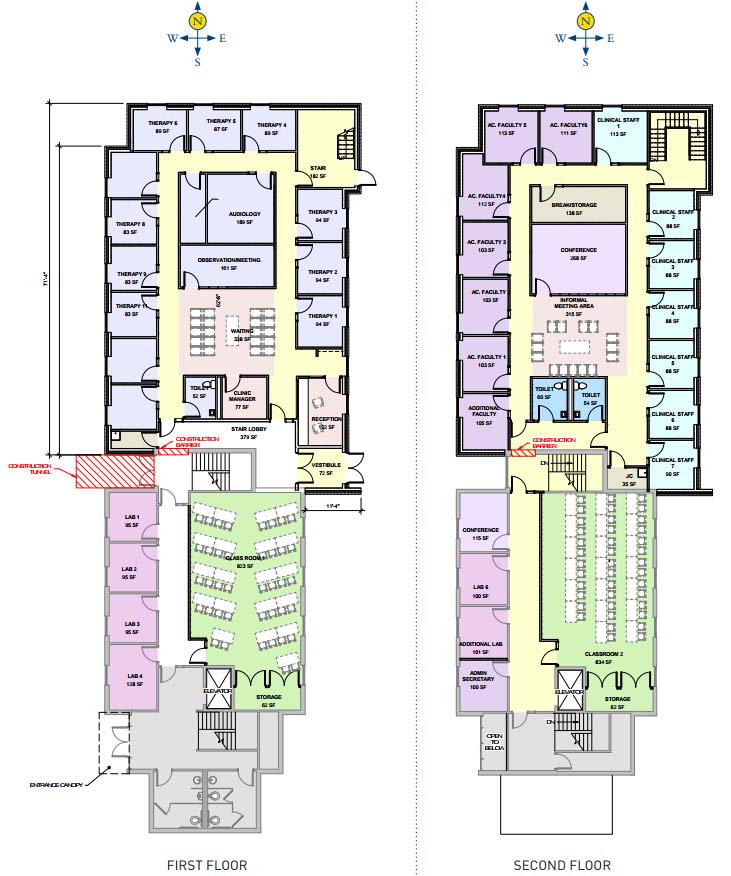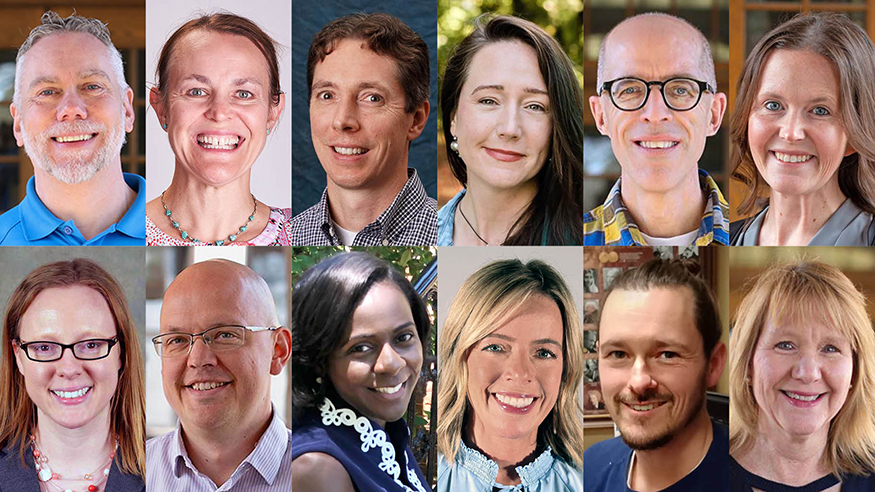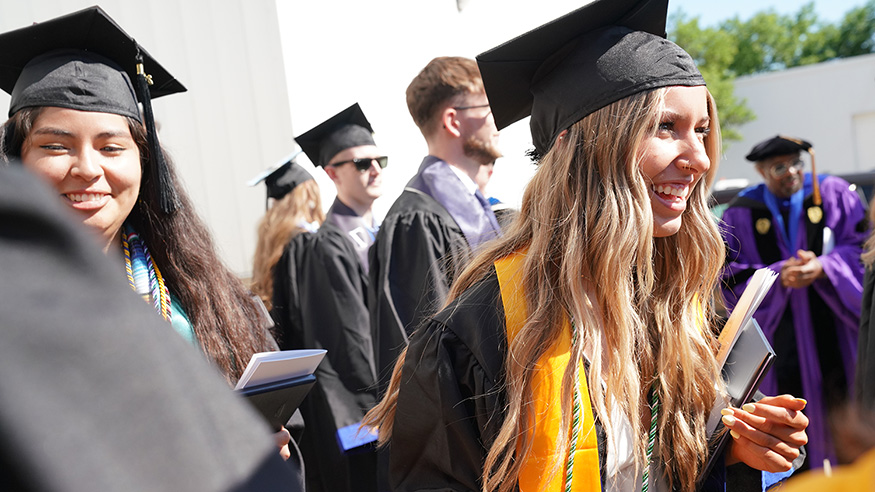The Betsey Brodahl Building has housed Augustana’s highly regarded program in Communication Sciences and Disorders (CSD) since 2007. Over the past decade, student interest in the program has increased in response to a national shortage of speech-language pathologists and audiologists.
Several years ago, Augustana’s CSD faculty noticed a trend: Graduates were competing with each other for a limited number of openings in the nation’s top graduate programs. Their research showed a strong need for more CSD graduate programs to fill the growing demand.
With the combined strength of Augustana’s undergraduate students and CSD program and faculty, it became clear that Augustana is an ideal place to create a top-notch 24-month master’s CSD program.
In the spring of 2016, the Augustana faculty approved adding a CSD master’s program and the accreditation process began.
The first classes in the master's degree in speech-language pathology tentatively are planned for the summer of 2020. It will be a 24-month program that includes extensive coursework, four semesters of clinical practice in the on-campus center, and two full-time clinical externships.
The program will graduate its first students in 2022. Students in the master's program will begin immediately after their undergraduate graduation in May. All undergraduate majors will continue to obtain hands-on clinical practice over three semesters during their bachelor's degree program.
Faculty anticipate enrolling 20 graduate students each year. As part of their experience completing the required minimum of 375 clinical practice hours, they will work in the on-campus clinic and in two 14-week externships in the community.
All plans and timelines for the new master's program are contingent upon approval from accrediting bodies, including the Council on Academic Accreditation through the American Speech-Language-Hearing Association (ASHA), and the Higher Learning Commission.
Expansion of the Betsey Brodahl Building
The Brodahl Building has been the hub of academic and clinical activity for CSD, with classrooms, faculty and clinician offices, student clinical workspaces, and the busy Center for Speech, Language, and Hearing. As it stands today, the Brodahl Building cannot accommodate an accelerated master’s program for 20 students in addition to the thriving 120-student undergraduate program.
The graduate program will include new faculty, clinicians, academic courses, and student/client clinical interactions — which in turn will require offices, classrooms, observation rooms, labs, therapy rooms and conference spaces.
As the preliminary drawings show, the Brodahl addition will approximately double the size of the building. The expansion will add unique spaces and equipment required to continue the rigorous undergraduate program; accommodate excellent graduate student work in the classroom, clinic and research labs; add to the number of student clinic hours; and attract and retain additional outstanding faculty and clinicians.
The Augustana College Center for Speech, Language, and Hearing is the on-campus clinic and training site where faculty, students, and licensed and certified clinicians provide assessment and intervention services to people with a variety of communication disorders.
The center is a key component of both the undergraduate and planned graduate programs, and has a large footprint in both the existing and renovated building. The spaces described below will provide the center and students, staff, faculty and clients the technology, equipment and room to use the most effective therapies and continue best practices in patient/client care and student learning.
Faculty and clinical staff offices
Fourteen offices are planned for the second floor: six for faculty, seven for clinical staff and one for a full-time support person. This includes space for three new faculty members, two new full-time clinical supervisors, and a full-time support staff member. Individual offices are important for supervising students working with clients, given the confidential nature of patient-based discussions. Each office will be equipped to record sessions for viewing and analysis.
Labs
Over time, the CSD program’s three labs have been relinquished for office space, and the faculty members now share one lab. The program cannot continue even its current high level of student-involved scholarship without additional research labs.
With the expansion, all faculty members will have their own dedicated lab space for personal research, graduate student research and the continued participation of undergraduates in Senior Inquiry research projects.
Therapy rooms
Students apply strategies and principles they learned in class to serve about 90 Illinois and Iowa clients with communication impairments every week. After the expansion, 12 first-floor therapy rooms will be the heart of the clinic and the core of the undergraduate and graduate CSD curriculum. Currently, the program has seven therapy rooms and one audiology booth. Audiology patients, especially veterans, travel from up to 200 miles away for services. With the addition, Augustana will expand its audiology services, including hearing screenings and assessments, and hearing aid fittings and management.
Observation room
Currently, the Brodahl Building has no dedicated observation rooms. If students or clients’ family members wish to observe therapy room activities, they must stand in the hallway and view sessions through a small window in the door. This congests the hallways, distracts clients and student clinicians, and hinders privacy. With a dedicated observation room that uses cameras to show the client and clinician at work, families can easily watch client progress and better learn how they can repeat the activities at home.
Classrooms
The two classrooms planned for the expanded Betsey Brodahl Building will be designed with the high standards Augustana has set for classrooms in all of its recent building projects. Best practices in teaching and learning dictate that we build smart classrooms with flexible layouts and furnishings. This design meets faculty and student need for small group discussions, team-based quiz taking, group projects, and the ability to switch easily between individual and collaborative work.
Conference room
The building as it stands now lacks meeting space for small groups. The expansion will give the program a dedicated conference space where clinical supervisors can hold weekly meetings with student clinicians; where CSD students can meet within easy access to resources for group projects; and which any student, faculty or staff member can use for meetings, presentations, conference calls, research or class preparation.





